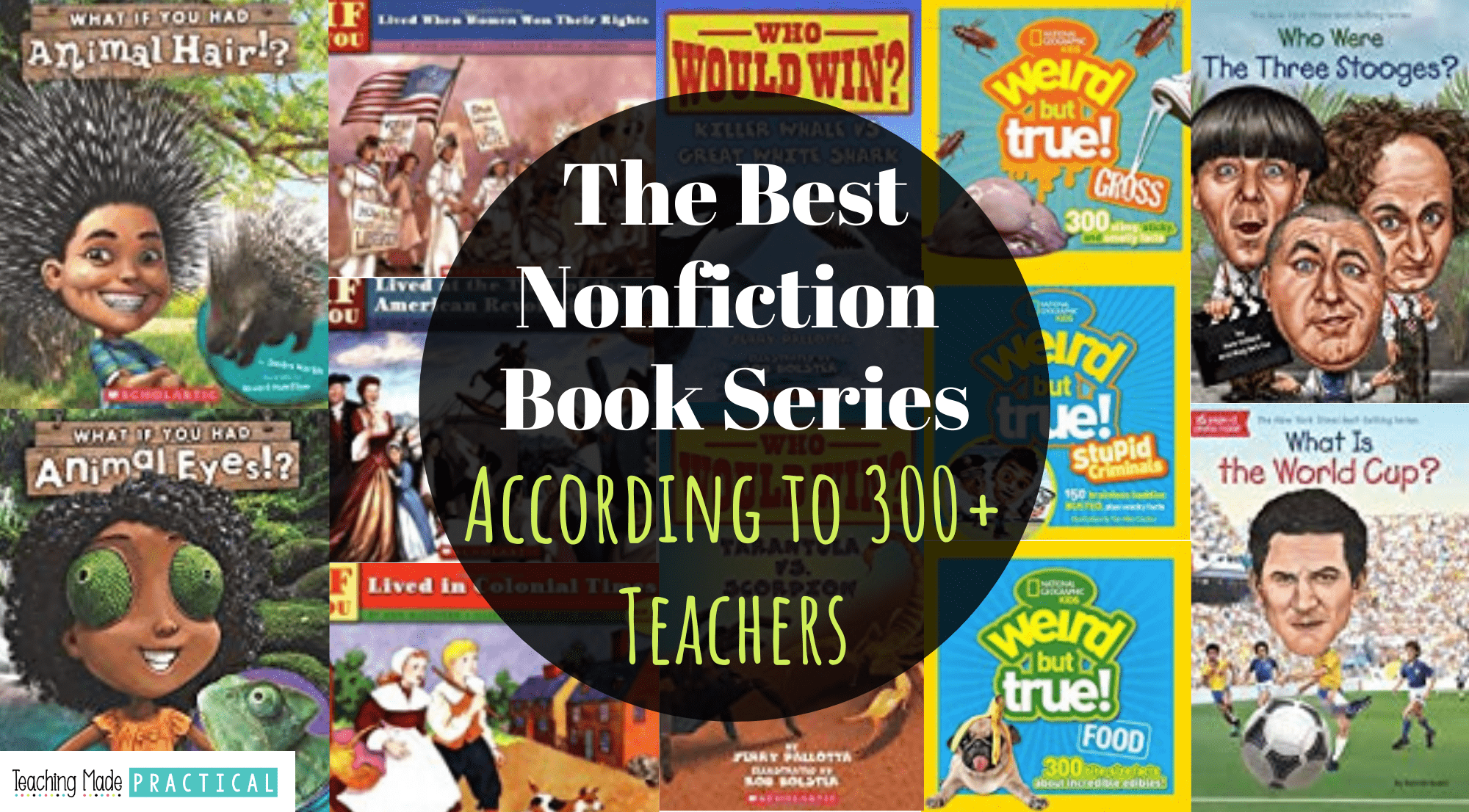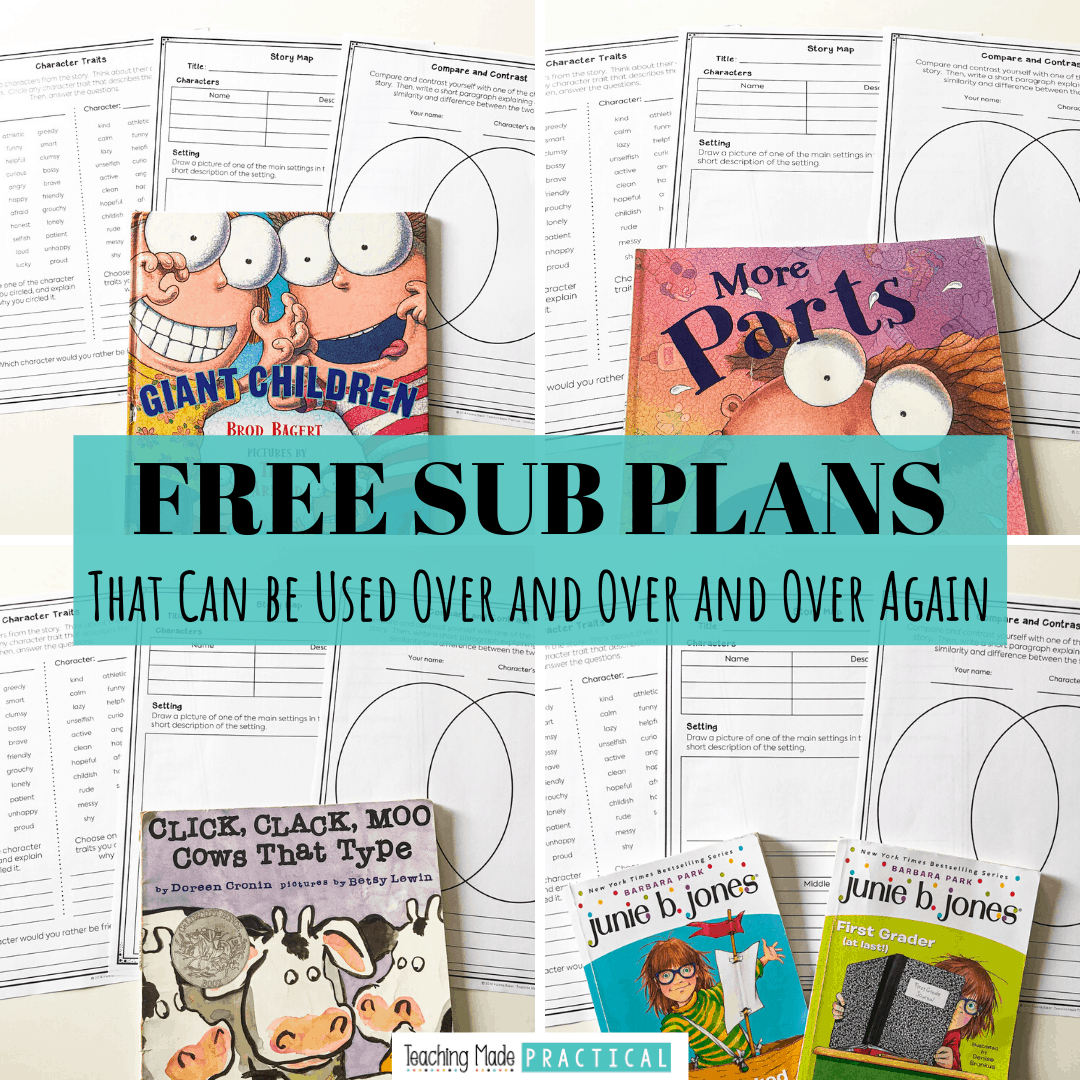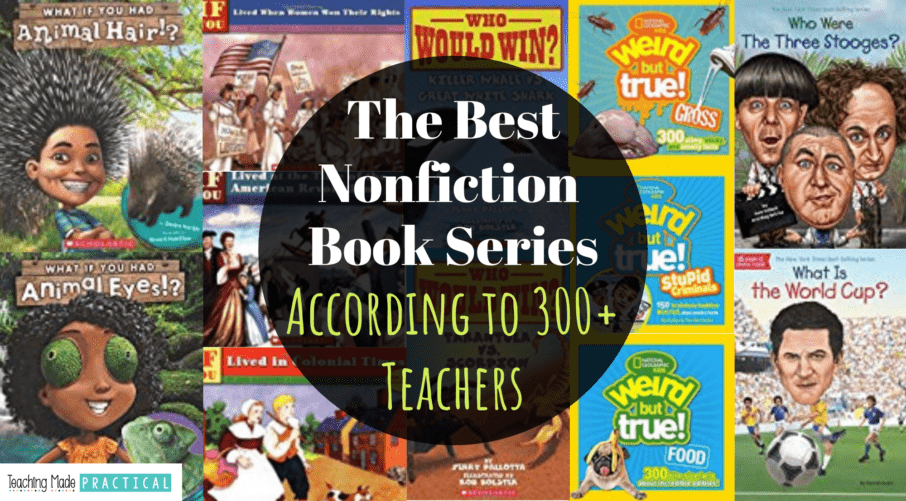
Most 3rd, 4th, and 5th grade teachers I know could easily tell you their favorite fiction books to read aloud to students, but choosing a nonfiction book is harder. We just don't read nonfiction or informative texts as much as we read fiction texts because it is harder to find engaging books and series.
We lean on fiction books with positive themes and inspiring stories that we want our students to learn from. We love fostering a love of reading in our students, which is most easily done through fiction. However, it is essential that we teach students to love nonfiction as well. And students love learning about history and science in an engaging way.
In order to find the best nonfiction books for upper elementary grade students, I surveyed over 300 teachers and asked them what their favorite nonfiction books were for the classroom.
The teachers provided me with some amazing nonfiction books, and I wanted to share the top results. I was surprised to find that many teachers didn't have just one favorite book - but they had a favorite nonfiction book series. So, this blog post does not include the best overall nonfiction books, but only shares the most popular book series.
The teachers' favorite nonfiction book series are below, starting with the most popular!
The book links are affiliate links, so if you choose to click the link and buy I might get a small compensation at no cost to you.
The Most Popular Nonfiction Book Series - History, Science, and More
#1: Who Was.../What Was...Where Is Series
This was the overwhelming favorite nonfiction book series by a landslide. Teachers had different favorites, including:
- Who Was Anne Frank?
- Who Was Blackbeard?
- Who Was Harriet Tubman?
- Who Was Martin Luther King, Jr.?
- What Were the Twin Towers?
With over 200 books in the series, you are sure to be able to find a topic that is is interesting to your 3rd, 4th, and 5th grade students and will get them loving to read nonfiction. These also make great books for a research project - with so many options, each of your students could easily research a different person and still be researching someone interesting to them.
The website for the book series also has a page specifically for educators that includes extension ideas and activity sheets. There are some good writing activity ideas and fun activity sheets (although there are some unpractical and un-rigorous ideas as well).
#2: What If You Had...
This is my personal favorite nonfiction book series, and a favorite by many other teachers! These books are both funny and informative, teaching upper elementary students about different parts of animals in an imaginative way.
- What If You Had Animal Hair?
- What If You Had An Animal Nose?
- What If You Had Animal Teeth?
- What If You Had Animal Eyes?
- What If You Had Animal Feet?
- What If You Had An Animal Tail?
- What If You Had Animal Ears?
Sandra Markle is the author of all of these books (as well as many other nonfiction children's books).
Save time and stress this school year with these Nonfiction Reading Response Activities that can be used over and over throughout the school year with ANY nonfiction text.
3rd, 4th, and 5th grade students will respond through reading, writing, poetry, speaking, listening, drawing, interviewing, and more. This is a must have for any upper elementary teacher that does not want to have to constantly recreate the wheel.
#3: Weird But True...
The title is pretty self-explanatory. This nonfiction book series shares random weird but true facts. The facts are interesting, and many of them seem unbelievable.
Even the most reluctant readers will be drawn into these crazy facts.
- Weird but True! Stupid Criminals: 150 Brainless Baddies Busted, Plus Wacky Facts
- Weird But True Food: 300 Bite-size Facts About Incredible Edibles
- Kids Weird But True: 300 Outrageous Facts
- Weird But True Gross: 300 Slimy, Sticky, and Smelly Facts
- Weird But True Sports: 300 Wacky Facts About Awesome Athletics
#4: Who Would Win...
I love the idea behind this series. The author, Jerry Pallotta, shares information about two different animals. Using the information provided, the reader is supposed to use their own reasoning to figure out which animal would win in a fight. For students that love animals, this is a compelling read.
Some of these books are on the easier side for upper elementary students.
#5: If You Lived...
This book series helps students think about what life would be like for them if they lived in a different time period or lived in a different place. These books can help bring social studies and history standards alive.
There are many books in this series, but some teacher favorites are:
Check out these other books that are great for read alouds or upper elementary classroom libraries.
Never Stress Over Sub Plans Again!

Make copies, find a fiction book, and you'll be ready for any emergency that comes your way!







